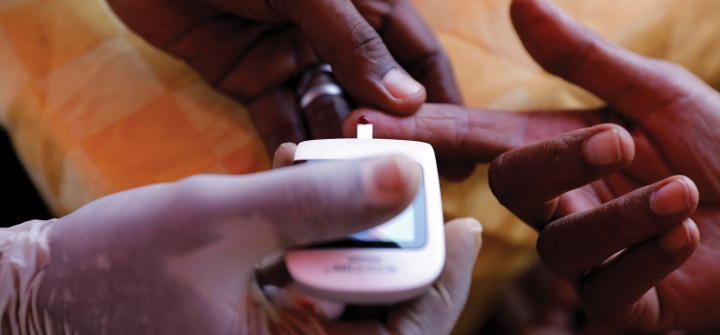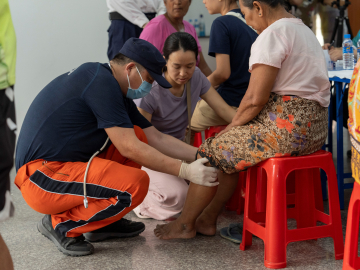Diagnostics Not Just Insulin Needed to Fight Diabetes
The global rise of diabetes is fast outpacing efforts to address health care gaps, and today, more than 3 in 4 adults with diabetes now live in low- and middle-income countries. But in these countries, 1 in 3 people with the condition has never had their blood glucose measured at all.
And a new report published this week indicates that Africa now tops the world in undiagnosed diabetes, with just 46% of people in the region living with diabetes knowing their status.
Carefully tracking blood glucose levels enables people with diabetes to make important decisions to support their health, including adjusting their insulin or oral medication, diet, exercise habits and lifestyle. Not doing so can have catastrophic consequences. A particularly tragic case involved 3 Ethiopian brothers, who were on insulin and diligently stuck to their dietary restrictions. Tragically, all 3 suffered lower limb amputation, kidney failure, and ultimately died because their blood glucose levels and treatment regimens were not adequately monitored.
For every 2 people living with type 1 diabetes, 1 person has lost their life because of it. While that is largely due to lack of access to insulin, without access to the tools needed to monitor blood glucose levels (glucometers and test strips), diabetes management—including insulin administration—becomes dangerous guesswork.
As health care professionals and advocates for people with diabetes based in low- and middle-income countries, we are intimately aware of the challenges of diabetes management.
It was welcome news that 2 of the 5 new global diabetes targets set by the WHO earlier this year relate to blood glucose measurement. This emphasizes that efforts to address the well-documented lack of access to insulin and other glucose-lowering medication must go hand-in-hand with work to improve access to blood glucose self-monitoring tools and supplies.
Progress has been made in improving access to these essentials. Largely to address affordability, some pharmaceutical companies have put in place dedicated insulin access programs, and have begun scaling up promising initiatives, with varying degrees of success. In September, the first human insulin products were prequalified by WHO. This action aims to boost access by increasing the flow of quality-assured products on the international market and providing countries with greater choice and patients with lower prices. WHO prequalification is currently in the works for blood glucose self-monitoring tools—another acknowledgment of the importance of blood glucose monitoring alongside insulin as critical for diabetes management.
Momentum is also growing around the Global Diabetes Compact, which champions a holistic approach to diabetes management.
More can and must be done to harmonize efforts and integrate access to insulin (and other diabetes medication) with access to blood glucose self-monitoring tools. Initiatives must also be tailored to multiple literacy levels, so that every population is catered for.
The challenge is urgent. Marking World Diabetes Day 2022 this week, we call on manufacturers to leverage existing access to insulin programs and to use lessons learned from them to establish similar access programs for blood glucose meters and test strips. We urge governments and other major health care procurers to prioritize blood glucose self-monitoring tools alongside insulin.
And to those in the broader health care community, we insist that now is the time to rethink diabetes management. Screening, diagnosis, treatment, and monitoring are all equally essential components of chronic diabetes care. We must work together and move towards a unified approach, considering all these elements, to empower people with diabetes with control of their lives.
Lejla Druškić Mustafić is a nurse, T1D advocate, and Consultant at FIND, the global alliance for diagnostics.
Dr. Beza Yoseph Aseffa is medical doctor and technical advisor at the Clinton Health Access Initiative (CHAI) in Ethiopia.
A doctor gives a free blood sugar test on World Diabetes Day in Khartoum, Sudan on Nov. 14, 2019. Mohamed Khidir/Xinhua via Getty




